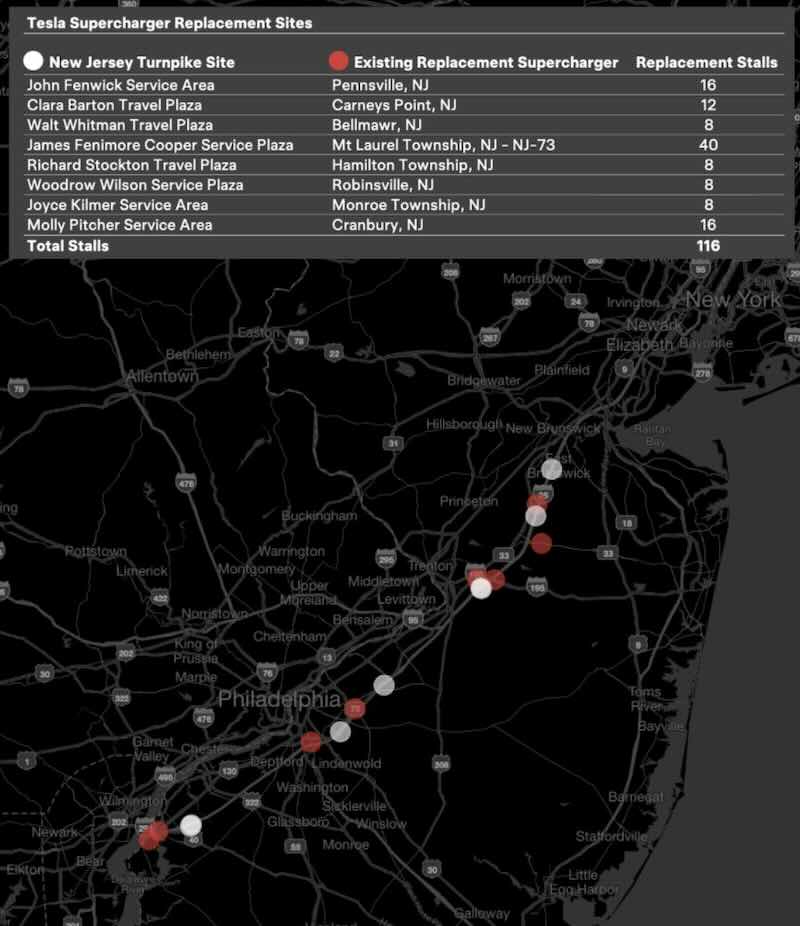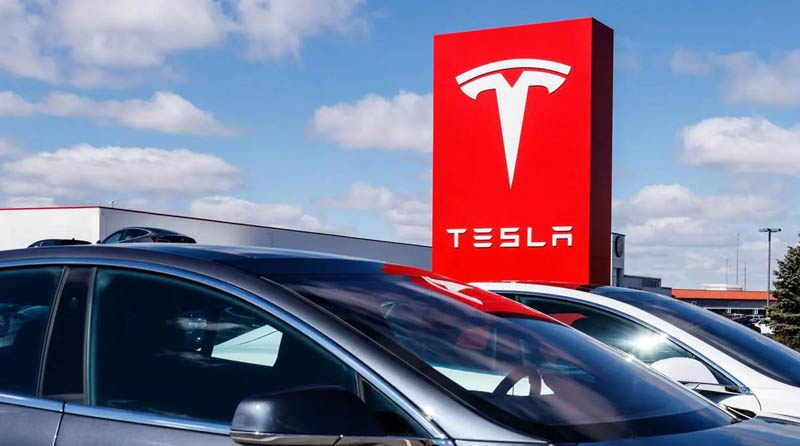The New Jersey Turnpike Authority has made a controversial decision that will force the closure of 64 Tesla Supercharger stalls along one of the Northeast’s busiest highways. NJTA chose to partner with a single third-party charging provider and explicitly refused to allow Tesla to co-locate its charging infrastructure alongside the new provider. Move has sparked criticism from Tesla and raises questions about the state’s commitment to expanding EV charging access.
Tesla’s charging division announced the decision on X, revealing that the company had been preparing for this outcome for three years by building 116 replacement charging stalls off the Turnpike. The New Jersey Turnpike decision effectively removes what Tesla claims is the most reliable charging network from a critical transportation corridor, potentially impacting thousands of EV drivers who regularly travel through the state.

The New Jersey Turnpike Authority chose one charging company for the Turnpike and won’t allow Tesla to co-locate.
Despite offering above-market commercial terms, Tesla couldn’t convince the NJTA to maintain its presence on the Turnpike. The company proposed building Superchargers at all New Jersey service plazas and offered significant equipment upgrades, including screens and NACS connectors with CCS1 “magic docks” for broader vehicle compatibility.
Tesla’s proposal would have maintained competition in the charging market while expanding overall capacity — a strategy the company argues is essential for supporting peak demand periods. According to Tesla’s data, their Supercharger network maintains 99.9% uptime with less than 1% of users experiencing wait times, while offering charging rates approximately 30% lower than competitors.
The decision to grant exclusive rights to a single provider runs counter to Tesla’s advocacy for co-location and competitive charging markets. Tesla argues that removing charging infrastructure rather than adding it represents a significant setback for New Jersey’s ambitious goal of achieving 100% zero-emission new car sales by 2035.
The company estimates that approximately 30 times more fast-charging capacity will be needed nationwide to support full EV adoption. By limiting provider options on the Turnpike, the NJTA may have inadvertently created a bottleneck that could discourage EV adoption along this crucial corridor.
The New Jersey Turnpike decision has attracted attention from high-profile critics, with Elon Musk responding to the news by suggesting “sounds like corruption.” Accusation adds political pressure to what was already a controversial infrastructure decision.
Tesla remains open to reversing course if Governor Phil Murphy or the NJTA reconsider their position. However, the company has made it clear that it will continue expanding off-Turnpike infrastructure to serve the Delaware Valley region and New Jersey EV drivers regardless of the authority’s decision.
While Tesla drivers won’t face service interruptions thanks to the company’s proactive planning, the New Jersey Turnpike decision represents a missed opportunity to maximize charging infrastructure and competition — leaving EV drivers with fewer options to turn-pike around this shortsighted policy.
Related Post
States Charge EV Drivers Growing Annual Fees as Gas Tax Revenue Drops
Republicans Plan to End $7,500 EV Tax Credit by December 2025, Draft Bill Reveals
New York Bolsters EV Rebate Program: Up to $2,000 Off New Electric Vehicles
